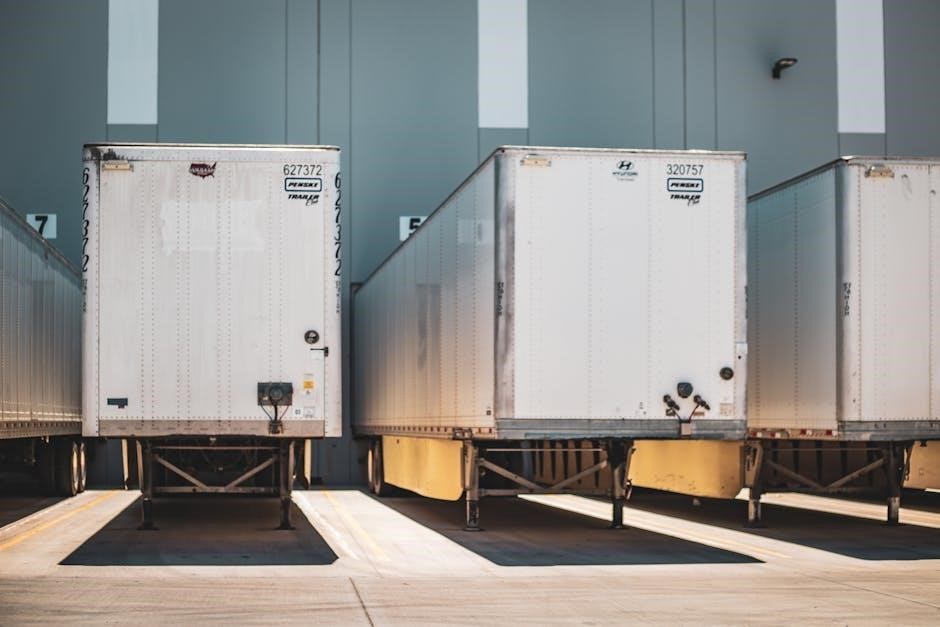The Agyapa Deal is a strategic agreement established by the Ghanaian government to manage and optimize the country’s mineral resources for future generations, ensuring sustainable development and revenue generation.
1.1. Overview of the Agyapa Deal
The Agyapa Deal is a government-initiated agreement designed to monetize Ghana’s mineral resources, particularly gold, for national development. It involves creating a special purpose vehicle to manage these resources, ensuring transparency and accountability. The deal aims to generate long-term revenue and stimulate economic growth. While it has garnered support for its potential to transform the economy, it has also faced criticism over ownership and control concerns. The agreement reflects a strategic approach to resource management, balancing immediate benefits with sustainable development goals.
1.2. Historical Context of the Agreement
The Agyapa Deal was introduced by the Ghanaian government to optimize the country’s mineral resources, particularly gold, for long-term economic benefits. Ghana, known for its rich gold reserves, has historically relied on mining as a key economic pillar. The agreement reflects a broader strategy to leverage natural resources for sustainable development. It builds on previous efforts to reform mineral resource management, addressing historical challenges of resource mismanagement. The deal’s formulation followed extensive consultations and stakeholder engagements, aiming to balance immediate economic needs with future generations’ interests. Its evolution underscores Ghana’s commitment to transparent resource governance.

Key Components of the Agyapa Deal
The Agyapa Deal involves monetizing Ghana’s gold royalties through Agyapa Royalties Limited, structured in Jersey and listed on the London Stock Exchange, attracting foreign investment for national development.
2.1. Structure of the Agreement
The Agyapa Deal’s structure involves creating a special purpose vehicle, Agyapa Royalties Limited, incorporated in Jersey. This entity holds a proportion of Ghana’s gold royalties, enabling the government to secure upfront capital by listing shares on the London Stock Exchange. The agreement ensures transparency and accountability by adhering to international financial standards, while also safeguarding national interests through retained ownership of a significant portion of the royalties. This innovative financial model aims to maximize revenue generation and ensure long-term economic benefits for Ghana.
2.2. Parties Involved in the Deal
The Agyapa Deal involves multiple stakeholders, primarily the Government of Ghana, which initiated the agreement to leverage mineral resources for economic growth. Agyapa Royalties Limited, a special purpose vehicle registered in Jersey, plays a central role in managing and monetizing future gold royalties. International financial institutions and legal advisory firms are also key participants, providing expertise in structuring and executing the deal. Additionally, the Minerals Income Investment Fund (MIIF) represents Ghana’s interests, ensuring that the agreement aligns with national development goals and maintains transparency throughout the process.
2.3. Financial Provisions and Royalties
The Agyapa Deal outlines specific financial provisions designed to ensure long-term revenue generation for Ghana. It establishes a framework for the allocation of royalties from gold mining operations, with a percentage allocated to Agyapa Royalties Limited. These funds are intended to be reinvested or used for strategic national projects. The agreement also includes mechanisms for transparency, ensuring that financial flows are tracked and reported to maintain accountability. This structure aims to maximize the value of Ghana’s mineral resources while ensuring sustainable economic benefits for the country and its citizens.

Significance of the Agyapa Deal
The Agyapa Deal is significant as it provides a framework to maximize Ghana’s mineral resources, ensuring sustainable economic growth and long-term revenue generation for the nation.
3.1. Economic Impact on Ghana
The Agyapa Deal is projected to significantly enhance Ghana’s economy by generating substantial revenue through the monetization of its mineral resources. This initiative aims to create a steady income stream, reducing reliance on fluctuating commodity prices. By leveraging the country’s vast gold reserves, the deal is expected to attract foreign investment, stimulate economic activities, and improve public infrastructure. Additionally, it seeks to ensure that the wealth generated benefits future generations through strategic investments in sustainable development projects. This economic transformation is anticipated to elevate Ghana’s status as a key player in the global mining sector.
3.2. Strategic Importance for Mineral Resources
The Agyapa Deal holds significant strategic importance for Ghana’s mineral resources by creating a framework to maximize their value. It allows the country to leverage its gold reserves to generate revenue through a structured financial approach. This initiative ensures that Ghana’s mineral wealth is transformed into a sustainable income stream, reducing dependence on volatile commodity markets. By attracting foreign investment and expertise, the deal positions Ghana as a key player in the global mining industry, enhancing its competitive edge and ensuring long-term benefits from its natural resources.
3.3. Long-Term Benefits for the Country
The Agyapa Deal is envisioned to deliver long-term benefits by transforming Ghana’s mineral resources into a sustainable source of wealth. It aims to create a legacy of economic stability through responsible resource management. The deal is expected to fund infrastructure development, education, and healthcare, improving the quality of life for Ghanaians. Additionally, it will attract foreign investment, stimulate economic growth, and create jobs. By fostering international partnerships, the deal strengthens Ghana’s position in the global economy, ensuring a prosperous future for generations to come. These outcomes align with the nation’s development goals and aspirations.

Controversies Surrounding the Deal
The Agyapa Deal sparked heated debates over transparency, fairness, and national interest. Critics argued it favored foreign entities, undermining Ghana’s sovereignty and potentially disadvantaging local communities politically and economically.
4.1. Political Debates and Criticisms
The Agyapa Deal ignited intense political debates, with opposition parties criticizing its structure as undervaluing Ghana’s mineral assets. Concerns were raised about limited parliamentary scrutiny and potential conflicts of interest. Critics argued the deal prioritized foreign investors over national benefits, sparking fears of resource exploitation. The government defended the agreement as a strategic move to unlock capital, but opponents highlighted the lack of transparency and equitable sharing of revenues. These criticisms led to widespread public skepticism, with many questioning whether the deal truly served Ghana’s long-term interests or merely enriched external entities.
4.2. Public Perception and Reactions
Public perception of the Agyapa Deal has been largely negative, with widespread skepticism about its benefits. Many Ghanaians expressed concerns over the lack of transparency and potential undervaluation of the country’s mineral resources. Civil society organizations and opposition groups criticized the deal, arguing it favored foreign investors at the expense of national interests. Protests and public forums highlighted fears of resource exploitation and short-term gains. The general sentiment reflected a mistrust in the government’s handling of natural resources, with calls for greater accountability and equitable distribution of revenues.
4.3. Legal and Regulatory Challenges
The Agyapa Deal has faced significant legal and regulatory scrutiny, with questions raised about its compliance with Ghanaian laws. Critics argue that the agreement bypassed critical parliamentary approvals and violated provisions of the Minerals Income Investment Fund (MIIF) Act. Concerns were also raised about the valuation of Ghana’s mineral resources and the transparency of the deal’s structure. Legal challenges have focused on whether the agreement prioritizes national interests or foreign investor gains. These issues have sparked debates about the balance between attracting investment and safeguarding Ghana’s legal and regulatory frameworks.

Key Terms and Conditions of the Deal
The Agyapa Deal outlines ownership structure, royalty payments, and transparency measures. It ensures accountability and compliance with international standards, balancing Ghana’s interests with investor expectations.
5.1. Royalty Payments and Calculations
The Agyapa Deal specifies that royalty payments are calculated based on a percentage of revenue generated from mineral resources. The agreed rate is 10%, ensuring equitable sharing of profits. Payments are made quarterly, with amounts determined by audited financial reports. The structure guarantees transparency, as calculations are subject to independent verification. These royalties are allocated to support national development projects, fostering economic growth and social welfare. The deal also includes mechanisms to adjust rates based on market fluctuations, ensuring fairness for both parties involved.
5.2. Ownership and Control Provisions
The Agyapa Deal establishes a special purpose vehicle, Agyapa Royalties Limited, incorporated in a tax-neutral jurisdiction. The government retains 51% ownership, ensuring majority control, while 49% is allocated to private investors. This structure aims to balance state oversight with private-sector efficiency. Critics argue this arrangement may compromise national sovereignty, as foreign investors gain influence over mineral resources. The deal includes provisions to prevent conflicts of interest and ensure transparency in decision-making processes. These measures aim to maintain public trust while attracting foreign capital to develop Ghana’s mineral wealth sustainably.
5.3. Transparency and Accountability Measures
The Agyapa Deal incorporates robust transparency and accountability measures to ensure public trust. Annual audits of financial transactions and public disclosure of reports are mandated. An independent board oversees operations, with clear guidelines to prevent conflicts of interest. A transparency committee has been established to monitor compliance and address concerns. These measures aim to foster openness and ensure that revenues benefit the nation. Critics have called for stronger parliamentary oversight to enhance accountability further. The government has committed to regular updates and stakeholder engagement to maintain transparency throughout the agreement’s implementation.

Government’s Rationale for the Deal
The government aims to maximize Ghana’s mineral resource value, attract foreign investment, and ensure sustainable development through the Agyapa Deal, fostering long-term economic growth and stability.
6.1. Maximizing Mineral Resource Value
The Agyapa Deal is designed to optimize Ghana’s mineral resource value by restructuring how royalties are managed and invested. By leveraging these resources, the government aims to generate sustainable revenue streams, ensuring long-term economic benefits. The deal focuses on creating a framework that prevents undervaluation of mineral assets and ensures fair compensation. This approach aligns with Ghana’s broader economic goals, prioritizing transparency and accountability to safeguard national interests. Ultimately, the initiative seeks to transform mineral wealth into tangible development opportunities, fostering growth and prosperity for future generations.

6.2. Attracting Foreign Investment
The Agyapa Deal aims to position Ghana as an attractive destination for foreign investment by creating a stable and transparent framework for mineral resource management. By establishing a Special Purpose Vehicle (SPV), the deal ensures clarity and predictability, which are key for international investors. This structure aligns with global best practices, making Ghana’s mining sector more appealing to foreign capital. The initiative is expected to enhance Ghana’s reputation as a reliable partner, fostering long-term partnerships and driving economic growth through increased foreign participation in the mineral resources sector.
6.3. Ensuring Sustainable Development
The Agyapa Deal emphasizes sustainable development by integrating environmental and social impact assessments into its framework. It ensures that mineral resource extraction aligns with global sustainability standards, minimizing ecological damage. The deal also promotes responsible resource management, ensuring that future generations benefit from Ghana’s mineral wealth. By prioritizing transparency and accountability, the agreement fosters trust and long-term economic growth. This approach balances economic benefits with environmental and social responsibilities, aligning with Ghana’s broader vision of sustainable development and inclusive progress.

Opposition and Criticisms
The Agyapa Deal faced criticism for perceived lack of transparency and potential undervaluation of Ghana’s mineral resources, raising concerns about inequality and environmental risks.
7.1. Concerns Over National Sovereignty
Critics argued that the Agyapa Deal could compromise Ghana’s national sovereignty by granting excessive control to foreign entities over its mineral resources. Concerns arose about the potential erosion of decision-making power, as the agreement might favor external investors over local interests. Many feared that this could set a precedent for future deals, undermining Ghana’s ability to assert authority over its natural assets. Civil society groups and opposition politicians emphasized the need to protect national sovereignty, urging greater scrutiny of the deal’s terms to ensure they align with Ghana’s long-term interests.
7.2. Potential Risks to Local Communities
The Agyapa Deal has raised concerns about potential risks to local communities, particularly in mining areas. Environmental degradation, such as water pollution and land displacement, could harm livelihoods. Social impacts, including increased inequality and lack of consultation, have sparked fears of marginalization. Critics argue that without equitable distribution of benefits, local populations may not see improvements. NGOs have highlighted these risks, urging greater consideration for community welfare to ensure the deal does not exacerbate existing challenges faced by these communities.
7.3. Environmental and Social Impact
The Agyapa Deal has sparked concerns about its environmental and social implications. Mining activities linked to the agreement could lead to deforestation, water pollution, and ecosystem disruption, posing risks to biodiversity. Additionally, communities near mining sites may face health hazards from environmental degradation. Socially, the deal could exacerbate inequalities if benefits are not equitably distributed. There are also fears of community displacement and loss of livelihoods. These concerns highlight the need for robust environmental and social impact assessments to mitigate potential harm and ensure sustainable practices are prioritized.

Implementation and Execution
The Agyapa Deal’s implementation involves a detailed regulatory framework, ensuring compliance with legal standards. Stakeholders, including government agencies and mining companies, play crucial roles in execution, with ongoing oversight to guarantee adherence to agreed terms and sustainable practices.

8.1. Regulatory Framework and Compliance
The Agyapa Deal operates under a robust regulatory framework to ensure compliance with Ghana’s mining laws. Key agencies, including the Minerals Commission, oversee implementation, guaranteeing adherence to national and international standards. The framework mandates regular audits and transparent reporting to maintain accountability. Compliance measures are strictly enforced to prevent corruption and ensure environmental sustainability. This structured approach aims to balance economic benefits with social and environmental responsibilities, fostering trust among stakeholders.
8.2. Role of Stakeholders in Implementation
The successful execution of the Agyapa Deal relies heavily on the active participation of various stakeholders. The government plays a central role in policy formulation and oversight, while the private sector contributes expertise and resources. Civil society organizations ensure transparency and accountability, advocating for public interest. Local communities are engaged to address their concerns and ensure benefits are shared equitably. International partners bring technical assistance and investment. Collaborative efforts among these stakeholders are crucial to align the deal with national development goals and foster sustainable outcomes for all parties involved.
8.3. Monitoring and Evaluation Mechanisms
Robust monitoring and evaluation mechanisms are essential for ensuring the Agyapa Deal’s success. These include regular assessments of performance metrics, transparent reporting, and independent audits to guarantee compliance with legal and financial standards. Key performance indicators (KPIs) are used to track progress, while stakeholders are engaged to provide feedback. This ensures accountability and alignment with national development objectives. Continuous oversight helps mitigate risks and address challenges promptly, fostering trust and long-term sustainability of the agreement. These mechanisms are designed to safeguard public interests and optimize the deal’s benefits for Ghana’s economic growth and mineral resource management.
Future Prospects and Opportunities
The Agyapa Deal offers promising future prospects, enhancing Ghana’s mineral resource development and attracting foreign investment. It fosters international partnerships, driving economic growth and industrial expansion.
9.1. Potential for Economic Growth
The Agyapa Deal presents significant potential for economic growth by leveraging Ghana’s mineral resources. It aims to attract foreign investment, stimulate industrial development, and create jobs. The deal’s structure enables the government to monetize future mineral royalties, generating revenue for infrastructure and public projects. This could lead to improved infrastructure, enhanced mining operations, and diversification of the economy. By fostering partnerships and technological advancement, the deal aligns with Ghana’s long-term development goals, promising to boost GDP growth and strengthen the mining sector’s contribution to the national economy. This initiative could position Ghana as a key player in the global mining industry.
9.2. Strengthening of Ghana’s Mining Sector
The Agyapa Deal is expected to strengthen Ghana’s mining sector by attracting foreign investment and expertise. It aims to modernize the sector through advanced technologies and sustainable practices. The deal promotes a stable business environment, encouraging long-term partnerships and resource optimization. By enhancing regulatory frameworks, it ensures transparency and accountability in mineral resource management. This could lead to increased revenue generation from royalties, fostering sectoral growth and competitiveness. The deal also supports local capacity building, enabling Ghana to retain greater control over its mineral wealth and secure a more prominent role in the global mining industry.
9.3; International Partnerships and Collaborations
The Agyapa Deal is poised to foster international partnerships, enhancing Ghana’s collaboration with global mining entities. By engaging with foreign investors, the country can access advanced technologies and expertise, improving mining operations. These partnerships aim to create mutually beneficial agreements, ensuring Ghana’s mineral resources are developed sustainably. The deal also positions Ghana as a key player in global mineral supply chains, attracting further investment and strengthening diplomatic ties. Such collaborations could elevate Ghana’s reputation as a reliable mining destination, fostering long-term economic cooperation and integration into the global economy.
The Agyapa Deal represents a strategic opportunity for Ghana’s economic growth, balancing resource utilization with international collaboration. Its success hinges on transparency, accountability, and inclusive governance.
10.1. Summary of Key Points
The Agyapa Deal is a policy framework aimed at maximizing Ghana’s mineral resource value through strategic investment. It involves the establishment of Agyapa Royalties Limited, a Jersey-based company, to manage a portion of Ghana’s gold royalties. The deal sparked debates over national sovereignty, transparency, and economic benefits. Key points include the 49% and 51% ownership split, royalty calculations based on EBITDA, and the controversial valuation process. Critics argue it undermines local control, while proponents emphasize its potential to attract foreign investment and generate long-term revenue for development.
10.2. The Way Forward for the Agyapa Deal
The Agyapa Deal’s success hinges on addressing transparency concerns and ensuring accountability. Ghana must balance attracting foreign investment with safeguarding national sovereignty. Stakeholder engagement, including civil society and Parliament, is crucial for building trust. Regular assessments and independent audits can mitigate risks and ensure alignment with national interests. By fostering a collaborative environment, Ghana can harness the deal’s potential for sustainable growth while addressing public skepticism. The government must prioritize clear communication and equitable benefits to achieve long-term economic prosperity.



